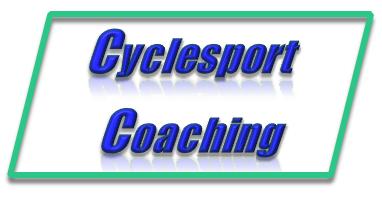Article

Personal Coaching and Training Information
for Cyclists of All Abilities
Training Resources
and Products
Talent, Hard Work, Pain and Suffering
What kind of title is that? Well, it’s a title that covers most all of the important ingredients to being a successful cyclist, that what kind of title that is!
It’s common to get caught up in all the new fangled ways to get faster on a bicycle. I’m as guilty as anyone, being a coach. I tend to focus on all the information I can get my hands on to learn about new ways to train for cycling. There are others who are equally as guilty in terms of buying all the latest trick equipment to eek out seconds in a time trial. Not that there is anything wrong with all this, but this article is intended to bring us back down to earth and cover the real basic attributes of a successful cyclist.
First you need talent. If you were born with the wrong parents you will never reach world class status no matter how hard you work. Taylor Phinney was born to ride a bike given that his parents were both world class cyclists. He has all the natural talent anyone could ask for. And he proved it by winning a world championship in his first year of competitive cycling! But don’t use lack of talent as an excuse if you don’t have Olympic medal winners for parents. You can make up for lack of natural talent by working hard. It’s just that for some people, riding a bike fast comes easier and with less training than it does for others. But almost anyone can become a competitive cyclist at the local level with a lot of dedication and hard work. Where lack of talent really becomes a limitation is at the national and international level. So don’t let this stop you from enjoying cycling and competing. Work hard and make the most of what you were given. You can always work towards beating your previous self. At the highest level, I believe the sport selects the athlete. It selects those who possess the most and the right types of natural talent, and those who are willing to make the most of it.
A second key ingredient for cycling success is plain old hard work. You have to put in your time in the saddle if you ever expect to be successful. You can go an awfully long way towards being a highly successful cyclist by putting in lots of miles and training hard. You have heard the massive amounts of training that the pros do: hundreds of miles per week, cranking out hundreds of watts for long periods of time. They have talent, but to fully realize that talent they have to put in the time and work. I know of some really strong, fast riders who don’t do a lot of structured training but are super fast just because of the huge miles they put in. So to be a really successful cyclist, you have to be willing to put in the time. If you don’t have that much time, you need to work as hard as you can during the time you have, but you will never be a top, competitive cyclist without the time and hard work.
Pain and Suffering. This is the time of year for the Paris-Roubaix race, which is synonymous with pain and suffering. This is one aspect of cycling and training that is rarely written about, yet I believe it is one of the key things, if not the single most thing, that differentiate top cyclists from each other, and any endurance athlete for that matter. On a physiological level, the top athletes are probably very similar in terms of VO2 max, sustainable power at threshold, % body fat, etc. The single thing that likely separates the winners from the losers at the finish line is their willingness to suffer. When a group of cyclists is coming in to the last 10 km of a race, it’s often the one willing to hurt the most that wins. Same goes for a time trial. It is more of a mental trait than a physical one. Pain it is a trait that can and should be trained along with the body. If you get used to pushing yourself through pain when training, you won’t be as afraid to do so in races. When you are doing intervals or time trial training, I believe it’s as much about mental training and fortitude as it is about physical training. Plus, if you can’t push yourself through pain when training, you will not improve physically very much. As the saying goes, “Pain is weakness leaving the body”. Pain is part of competitive cycling so you’d better make it your friend, or if not your friend, at least your ally. It’s interesting that you rarely hear of the pros talk about how much they suffer. Perhaps it is a tactic to keep their competition from knowing how much they are really hurting out there. But you can be assured; the pain the top athletes endure must be incredible. I’ve wondered from time to time if I could put the mind of a champion in my body, how much more could push me than I am willing or able to. I guess I’ll never know, and just as well. It would probably hurt too much!
Oh, and check out my brand new, newly designed website, www.CyclesportCoaching.com .
Coach David Ertl
___________________________________
David Ertl is a USA Cycling Level 1 (Elite) Coach and NSCA Certified Personal Trainer. He coaches individuals interested in improving on their current cycling ability, whatever level that may be. He also provides cycling training plans and ebooks at his website: www.CyclesportCoaching.com
He can be contacted at Coach@CyclesportCoaching.com
Download this article as a .pdf file